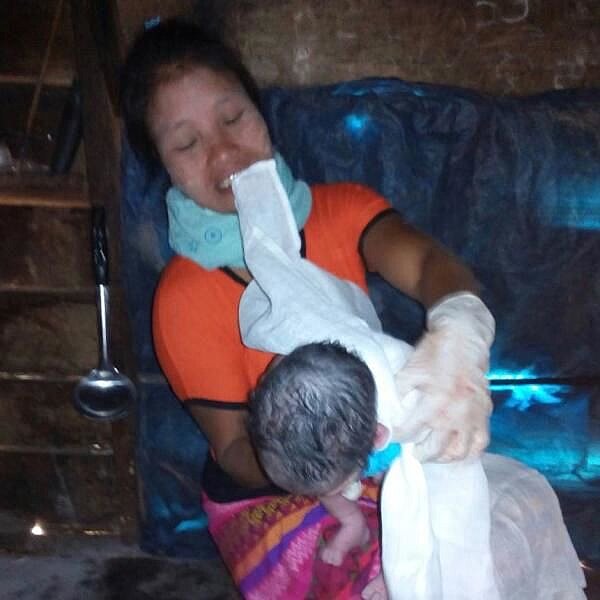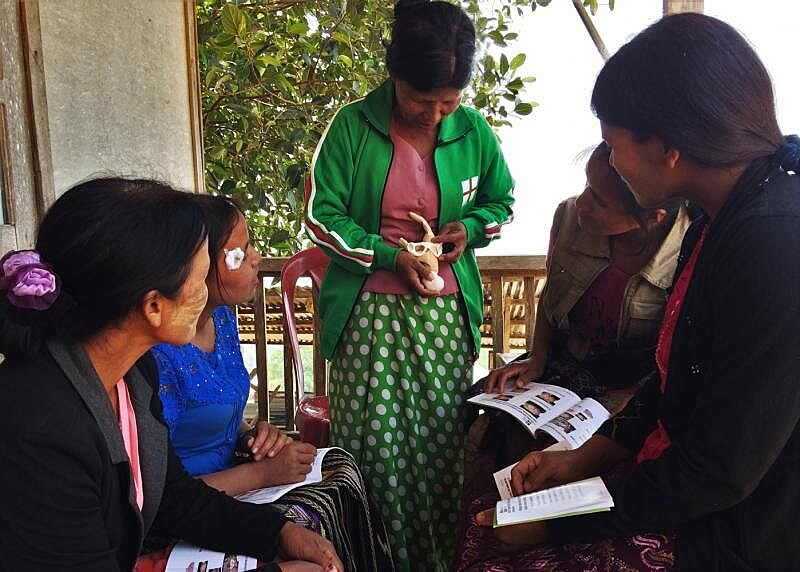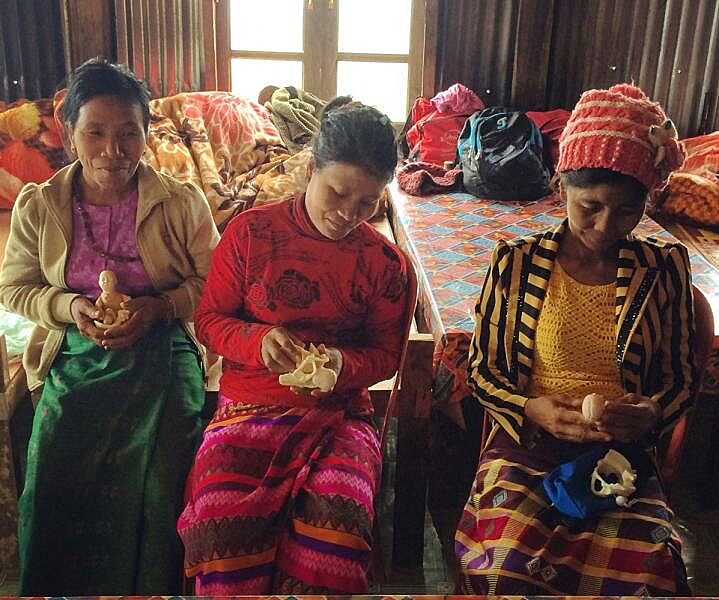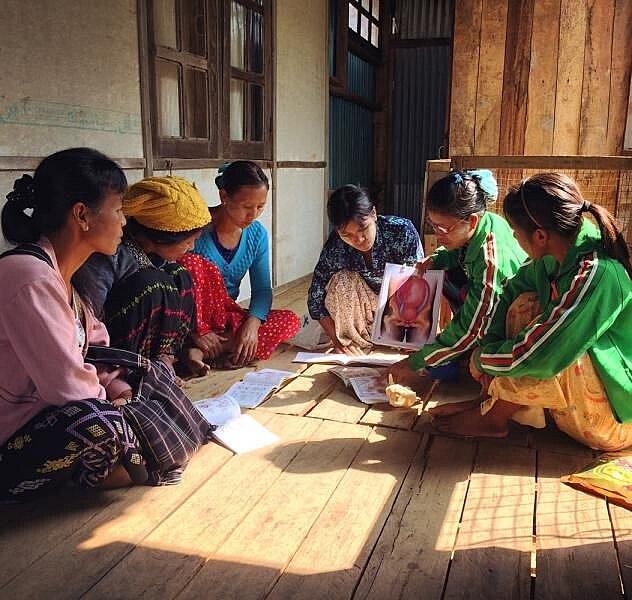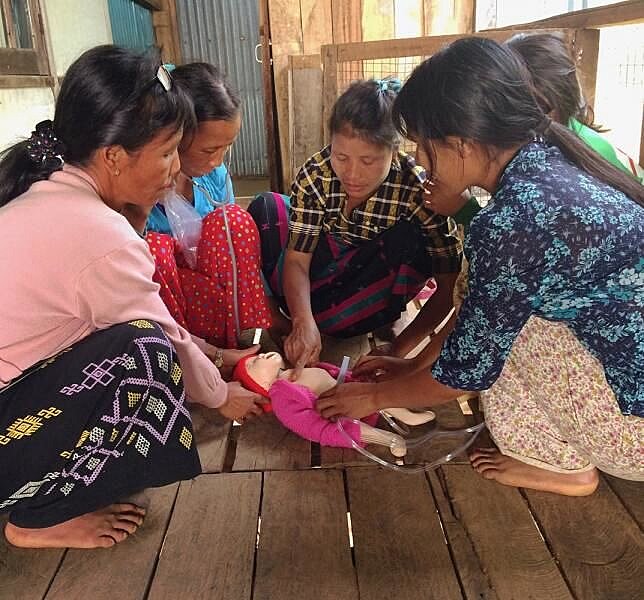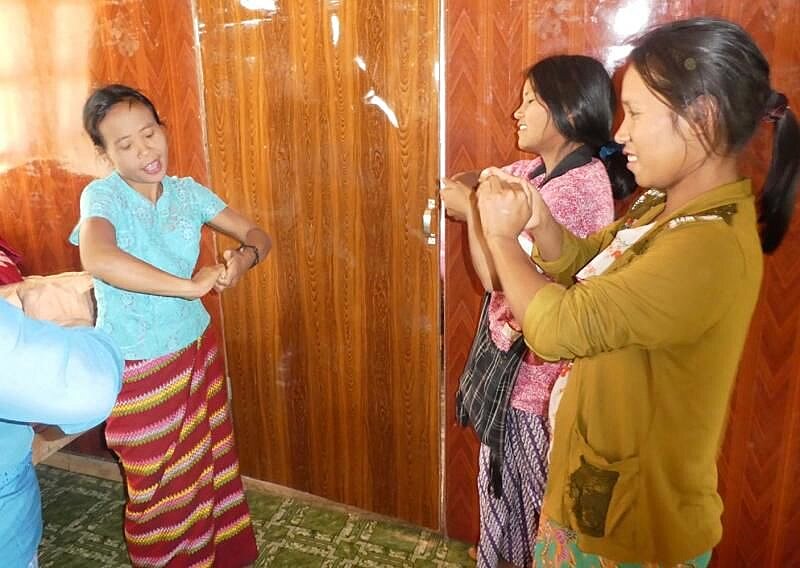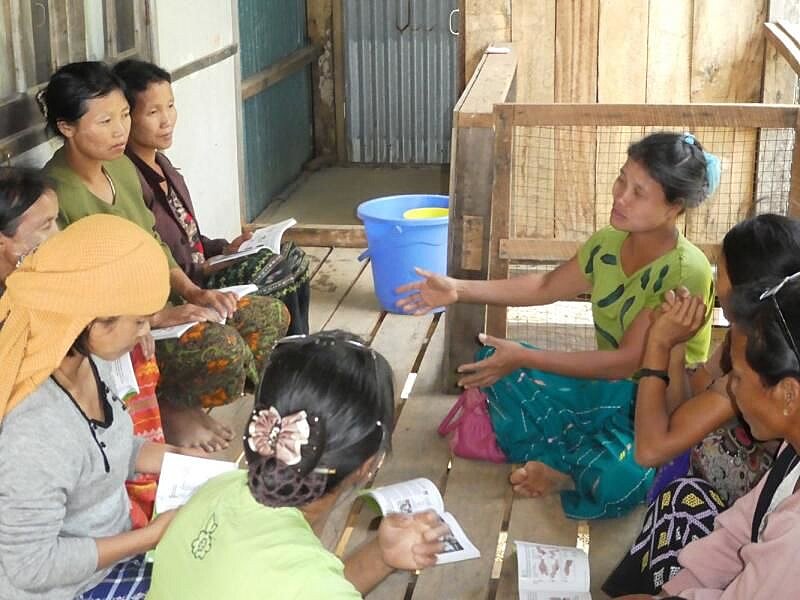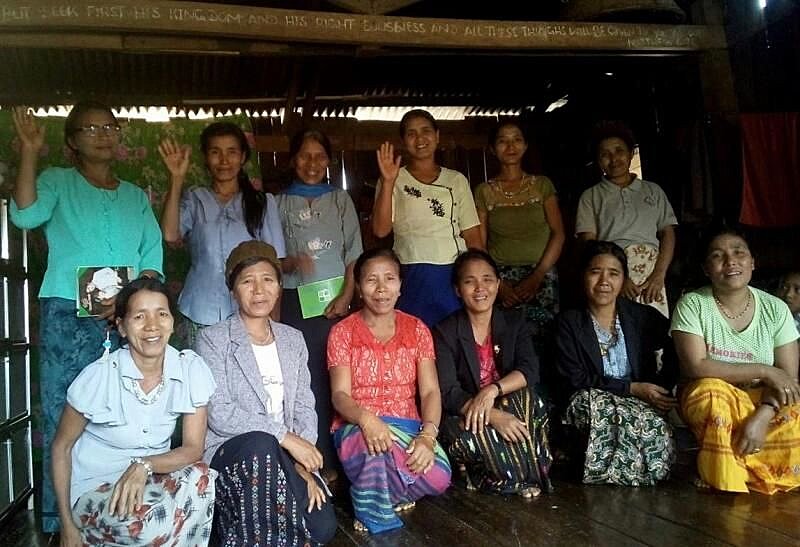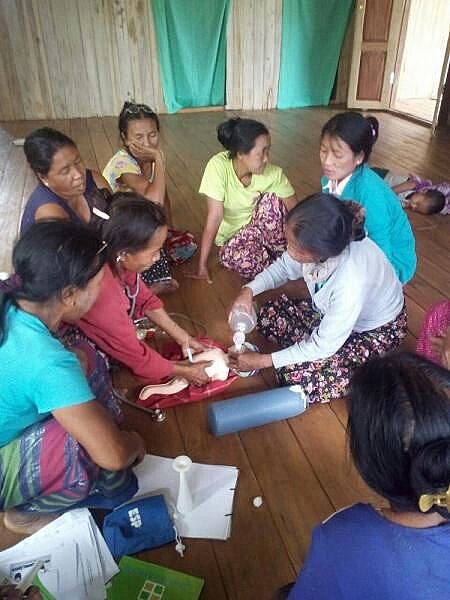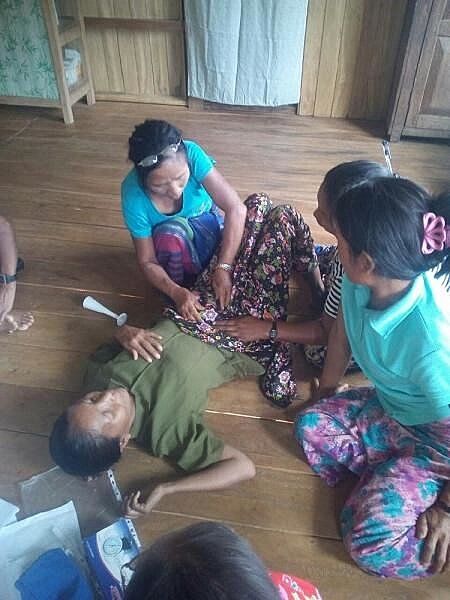A great success: Training Traditional Birth Attendants in Myanmar
Posted on 4th May 2018 by Chris Jones
We have only ever done rote learning in the past, but this training you have given us is so great because we can see, hear and touch. We can ask any questions we want to. The practical sessions are so helpful because you can really imagine it and practice it with your hands!
Thanks to the generous financial support of our partners, we were able to run our first "Train the Trainer" workshop for Traditional Birth Attendants (TBAs) in Lailenpi Town, Chin State at the beginning of April.
Our TBA training programme started in 2013 and has, to date, equipped over 166 local women with the skills to support mothers and babies through pregnancy, birth and early infancy. Our workshops focus on reducing the rate of neonatal and maternal deaths and the incidence of infant and maternal illness. The training has been so successful in one village, that the under-5 orphanage has now closed with no maternal deaths in the last five years!
To reinforce the expansion and sustainability of this training, we have recently piloted a ‘Train the Trainer’ initiative, equipping our most experienced indigenous health workers with the skills to proactively pass on their midwifery knowledge to new trainees themselves, rather than relying on outside expertise.
Our first ‘Train the Trainer’ workshop was run by three UK midwives during Easter, two of whom have made six prior trips to the region, having also supported the development of a bespoke training course for local women.
Following the six-day workshop, the new TBA trainers headed out to practice their skills in rural villages by training small groups of women across the region following a three-day curriculum. It was anticipated that they would each train up to four new TBAs. However, in the first village, sixteen women joined the training and in the second nineteen took part, so eager were they to participate and improve their knowledge.
In Zo Ma village, sixteen women attended the training even though they only invited five! During the time in the village, there was one woman who could not do any work and was lying in a flat position throughout her pregnancy. When the TBA Trainer arrived she was able to help reposition the baby and the woman has been able to stand and start work again. At the end of the training she came to give us a chicken to say thank you!
Another woman was told by a villager that she had cancer in her bladder because they did not know she was pregnant. The TBA Trainers examined her and found out she was four months pregnant! She was so delighted she praised God and was so thankful to the TBAs.
The women were so excited that other villages were calling to them saying, please come to our village, we will send a motorbike to pick you up.
In each village they went to, there was always more women than invited. They asked for help with vitamins and better nutrition. They also said the time was too short being just three days and the villagers were not satisfied and wanted more!
The trainers and trainees had another surprise too. While conducting the training they were able to use their skills during a real birth, with mother and baby well looked after by all. The perfect training opportunity!
Our UK midwives will return to Chin State at the end of 2018 to review progress and receive feedback. They will also assess the extent of the knowledge passed on to the new TBAs through practical and theoretical appraisal and deliver additional training during their time there.
We're delighted with the impact of this project and it's all down to the financial backing of our supporters. If you've been part of this project, thank you so much for partnering with us to bring health and hope to mothers and babies in western Myanmar!
We have, however, spent all of the funds raised over the last year and are now looking to secure further funding to enable the project to continue after the monsoon.
Can you help? If so, please do share the link to this news page to enable this vital work to continue.

